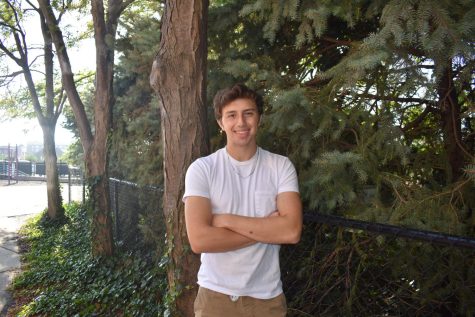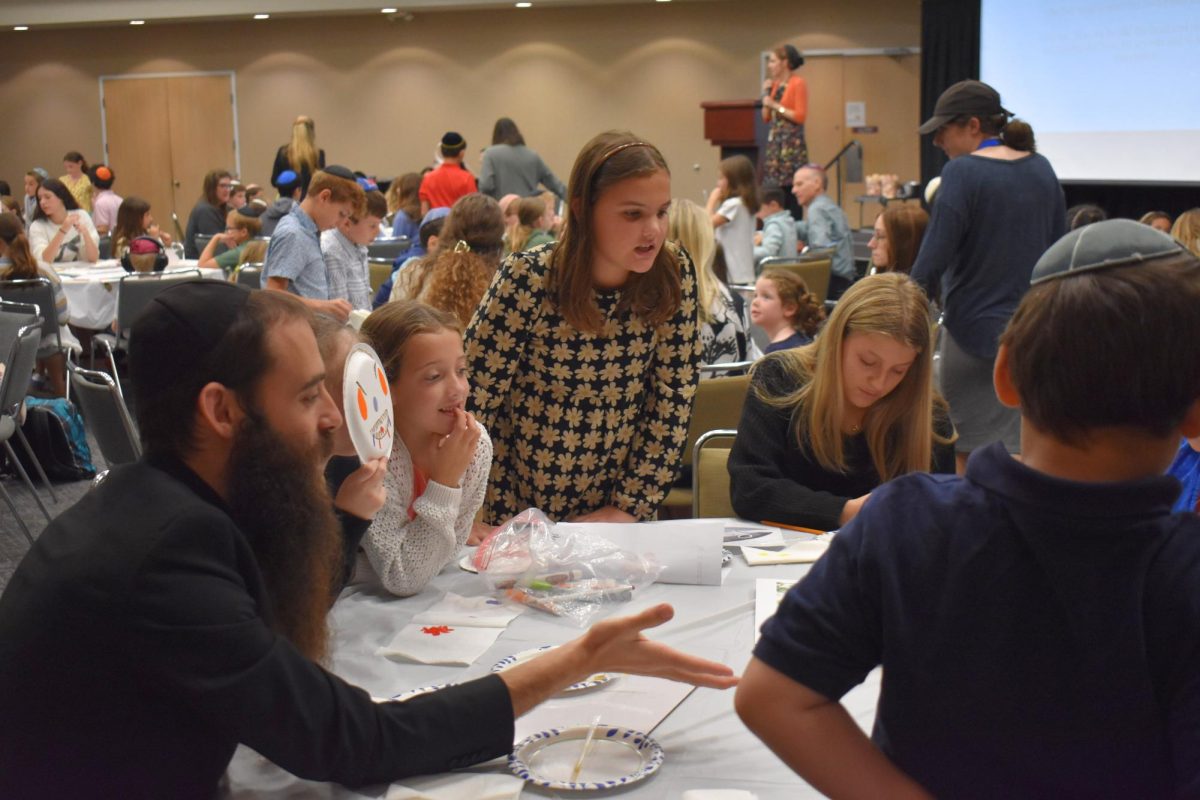Jason Kander’s War with Identity: An Exclusive Interview
The memoir dives into Kanders struggles and triumphs through his battle with PTSD. Photo by Ethan Sosland.
March 14, 2023
Veteran, Fortune 40 Under 40, first Millennial to hold a state-level political position. These are just a few of the many titles Jason Kander wields. When running for mayor of Kansas City, Mo., Kander was far ahead in all the polls. He had more funding than any other candidate, and strong political connections on his side; yet he pulled out.
The reason was that Kander had been fighting his own war for the past decade after he returned from his service in Afghanistan. He was braving his own invisible storm. In his latest book, “The Invisible Storm: A Soldier’s Memoir of Politics and PTSD,” Kander recounts his battles with PTSD and coming to terms with the condition. However, in order to fully understand how Kander adjusted to his condition, you have to first understand his mindset.
To learn more, I spoke with Kander in mid-February. At an early age, Kander developed what he described as “an irrational confidence,” in his own abilities. Regardless of its rationality, he attributes aspects of his confidence to his political journey. Kander even says that he hopes his own children will inherit this confidence.

Such great confidence, however, did not correlate to simple living. Kander has made many transitions in his life. These include: from a student, studying law at Georgetown University Law Center, to a soldier stationed in Afghanistan, to a politician, and then to a stay-at-home dad. In order to cope with such large scale changes, Kander recommends maintaining a healthy relationship with your various identities. “My advice is to not get too attached to any particular identity, or idea of who you are,” he remarked. “One of the things I’ve learned is that you are not what you do, and you are not where you live, and who you know…your identity does not have to be connected to all those things…”
Kander admits that these are issues he is struggling with to this day. “I don’t know that I’m the best person at it [disconnecting his identity from superficial actions], but I try really hard.” In order to keep himself grounded he reminds himself that nobody is “all anything.” Even with great people he has encountered, he realizes that they are not all good, nor all bad.
As someone who has sat down with former-President Obama to discuss a potential 2020 run for presidency, Kander has interacted with many high profile individuals. Although he has found a skill for managing these interactions, he sees them as possible for everyday individuals. He learned that “the more famous or successful people you meet, the more you realize that everyone has their own stuff going on…they’re just people that a lot of other people happen to know their name and face.”
In addition to being an important national political figure, Kander also has deep ties to Kansas City and its Jewish community. Even though he does not personally engage strongly with Judaism from a religious standpoint, he maintains a spiritual connection with G-d. As he has grown and become more comfortable with himself, Kander says he is “much more focused on passing on a strong spiritual foundation to my kids, and less so in any sort of traditional Jewish foundation.”

Although identifying as a secular Jew, he tries to maintain these spiritual roots. “We talk about G-d in our house a fair amount,” he states “…we [my wife and I] encourage philosophical discussions on existence and spirituality generally.” Like many individuals, Kander has had to wrestle with religion. Finding a comfortable spiritual identity is challenging, but he starts by being comfortable with his own identity.
Kander ends by reflecting on some advice a rabbi once instilled in him, “I had a rabbi once tell me that it was not my job to make the world more Jewish. It was my job to make the world better.” Through his efforts, he continues to lead with the mindset that we all have the power to fix the issues in our world that surround us.













































































